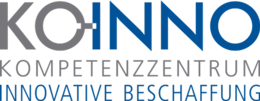
Under this guiding principle, the Ecovation organized by the Bundesbeschaffung GmbH and the IÖB took place in Vienna on 26 and 27 November 2018. It highlighted the relationship between sustainability and innovation and their added value for public procurement through various presentations and workshops.
Sustainability and innovation are not always two sides of the same coin
In many public procurement decisions, both goals are closely linked. A credo of the conference was: "Innovation pushes sustainability and sustainability pushes innovation". In this respect, both topics can not always be clearly separated. An example of linking innovation and sustainability is the development of e-car sharing, because the use of e-cars automatically leads to an improvement in air quality. An example of the fact that there are also projects with a strong innovative focus is the introduction of a dashboard system at the Berliner Stadtreinigung. The system ensures that various key figures are generated at the push of a button, thus digitizing and optimizing purchasing controlling.
Professionalization of procurement as a key
It was often noted at the conference that public procurement needed to become more professional. With the new procurement law, the framework conditions have changed. Procurement law is no longer just a legal framework, but an instrument to achieve strategic goals. However, there is a need for further education because this requires further knowledge of instruments and methods for acquiring innovations as well as the application of business management methods such as life-cycle costing.
Internal and external audit departments inhibit procurers from going new ways
A study by the University of the Federal Armed Forces in Munich in 2016 and 2018 showed that a large proportion of public procurers still strive for procurement law compliance, while strategic objectives play a disorderly role. Behind this is often the fear of being reprimanded by internal and external auditors. Breaking new ground or not using conventional products or services takes more time and may cost more money at first. Nonetheless, the study also showed that innovative solutions are cheaper, more efficient and therefore more beneficial in the long term.
"We have to let innnovation happen. That takes time and scope. "
The need to "let innovations happen" requires a different culture of innovation and error than it currently has in many procurement agencies. Breaking new ground involves certain risks that result, among other things, from inexperience and ignorance. But mistakes also lead to learning from them and that they will not happen again in the future. In addition, mistakes can also lead to the development of innovations. Many examples are found in medicine, such as the discovery of penicillin. Sir Alexander Fleming's primary goal was not to invent a drug that works against bacteria. Likewise, Marie Curie had not deliberately searched for X-rays. There are many more examples that make clear that mistakes are not per se bad but can lead to good, but perhaps unexpected, innovative solutions.
